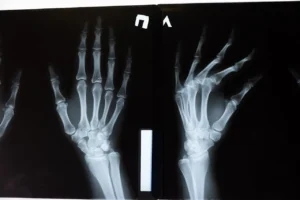
Takeda (TSE:4502/NYSE:TAK) today announced that it will present 17 company-sponsored abstracts at the 65th American Society of Hematology (ASH) Annual Meeting being held December 9-12, 2023 in San Diego. Takeda’s latest research focuses on improving treatment options for those living with hematologic diseases.
Takeda’s presentations will include oral abstracts detailing new results from the first randomized, controlled, open-label, crossover Phase 3 trial in congenital thrombotic thrombocytopenic purpura (cTTP) as well as safety and efficacy data from the continuation trial. The totality of the evidence provided by an analysis of these trials supported the recent U.S. Food and Drug Administration (FDA) approval of ADZYNMA (ADAMTS13, recombinant-krhn) as the first and only FDA-approved therapy for the prophylactic and on-demand treatment of adult and pediatric patients with cTTP.
Additional hematology oral sessions include topline Phase 1 data evaluating the safety and pharmacokinetics of investigational TAK-755 (recombinant ADAMTS13) in sickle cell disease and a meta-analysis of real-world evidence studies of the clinical outcomes for noninhibitor patients with hemophilia A.
“Our aspiration is to deliver life-transforming medicines for difficult-to-diagnose, rare hematologic diseases with high unmet patient need,” said Björn Mellgård, M.D., Ph.D., vice president and global program lead of Rare Genetics and Hematology at Takeda. “Our continued research aims to improve long-term outcomes for patients suffering from these conditions. We look forward to presenting our latest trial results at ASH, a conference that cultivates an environment for scientific exchange that could one day lead to marked improvements in patient care.”
Oncology presentations will include a subgroup analysis of the Phase 3 PhALLCON trial evaluating ICLUSIG® (ponatinib) versus imatinib plus reduced-intensity chemotherapy in adults with newly diagnosed Philadelphia chromosome-positive acute lymphoblastic leukemia (Ph+ ALL), a disease area for which there are currently no approved targeted treatments in the U.S. Additionally, the German Hodgkin Study Group will present data from the Phase 3 HD21 study comparing escalated doses of bleomycin, etoposide, doxorubicin, cyclophosphamide, vincristine, procarbazine, prednisone (eBEACOPP) with ADCETRIS® (brentuximab vedotin) in combination with etoposide, cyclophosphamide, doxorubicin, dacarbazine and dexamethasone (BrECADD) in patients with newly diagnosed, advanced stage Hodgkin lymphoma.
“We’re excited to share our latest oncology research at ASH this year, focusing on patients with difficult to treat blood cancers,” said Awny Farajallah, M.D., head of global medical affairs oncology at Takeda. “As part of our commitment to patients with limited or ineffective treatment options, we continue to evaluate new and expanded uses of our established medicines, including in lymphoma and leukemia, to enable even more patients to potentially benefit from these life-transforming therapies. We look forward to sharing these findings with the community.”




